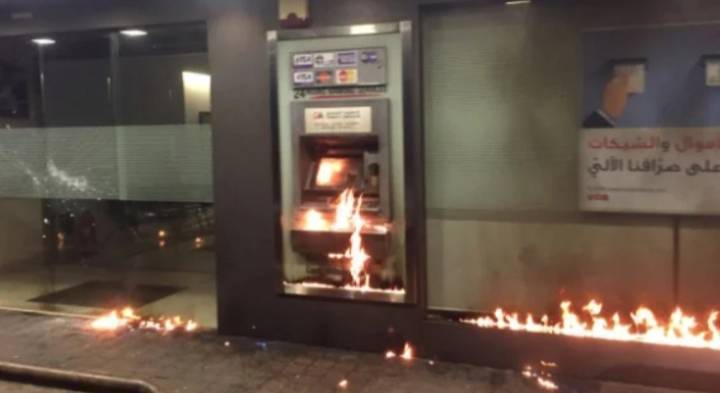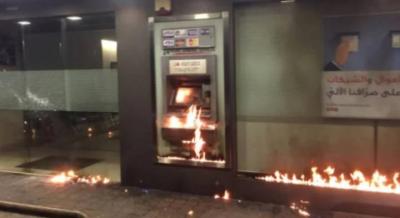Scenes of anger yesterday, from burning banks to road blockades, may be one of the manifestations of the security breakdown and social explosion that could emerge from the pressures and crises, and it will not be easy to contain once it erupts. What happened yesterday raises many questions about whether the forces persistently obstructing the path to rescue are aware of the major dangers posed by this obstruction. This has led the Progressive Socialist Party to remind of the dangerous circumstances Lebanon is experiencing and the immense pressures threatening all institutions and state stability, emphasizing the need for continuous work at all levels to try to save Lebanon from its crises, fortify its institutions, and initiate a rescue process that begins with electing a president of the republic above all else.
With the alarming rise in the dollar exchange rate, while supermarkets each time resort to raising prices of goods exceeding the exchange rate, the Ministry of Economy found the solution in dollarizing goods and commodities. Minister Amin Salam announced that supermarkets are allowed to price in dollars "by adopting the prevailing exchange rate in the market," confirming that "the goal is not dollarization but consumer protection," specifying a deadline until next Wednesday "to implement the new price control mechanism," as he said.
Deputy Bilal Al-Hosheimi, in a conversation with the electronic newspaper "Anbaa," stated that the direct cause of the economic crisis is the collapse of the state and all its institutions except the military institution. He expressed astonishment at "some people's insistence on holding a legislative session with no purpose, as the capital control they cite is part of the required recovery and reform plan and not an extension for some general managers. At a time when it was supposed that the Parliament would become an electoral body and we would go about electing a president of the republic to ensure the proper functioning of institutions and form a new government tasked with implementing the necessary reforms." He questioned "why hasn't the resistance team named their candidate, whether it be former Minister Sleiman Frangieh or others? We have our candidate, Deputy Michel Moawad; let the elections be held amidst this competition and may the most qualified win, as it is a grave mistake for the situation to remain as it is."
Financial and economic expert Dr. Anis Abu Diab considered that "the country is in a phase of a resounding collapse and heading towards worse conditions; the longer the crisis lasts, the faster the collapse will accelerate and the heavier the cost will be." In an interview with "Anbaa" electronic, Abu Diab confirmed that "there is no ceiling for the dollar and prices, and we are undoubtedly heading towards social tensions whose outcomes no one can estimate." He revealed that "the Dubai meeting, which brought together several prime ministers and ministers of finance, issued a clear warning from the IMF director and the IMF's Middle East director regarding Lebanon, as it has not implemented the required reforms and has not made any reformative steps since signing the contract with it in April." He noted that "there are no possibilities for using monetary policy and measures to limit the dollar's rise as the Central Bank has lost control over the dollar's exchange rate and is no longer able to manage it," urging the Central Bank to "stop the Sayrafa platform and refrain from exhausting the dollar reserve, which amounts to $9.7 billion, as long as there is no agreement to exit the crisis," considering that "the central bank cannot halt smuggling and intense speculation because it is politically motivated."
Abu Diab warned against transforming the Lebanese economy into a cash economy to close bank accounts abroad, stating: "When it turns into a cash economy, it becomes susceptible to money laundering, and there are also reasons related to bank secrecy, thus issues will not be solved by closure; rather, they should be taken to the competent courts or lawsuits raised; we cannot hold people hostage."
However, in light of all of this, all citizens of Lebanon have effectively become hostages to these ongoing crises, which will not end as long as essential forces remain stubbornly against the implementation of what is necessary to save Lebanon. This rescue can only occur through a formula that protects institutions, restores constitutional work to its nature by electing a president of the republic, gives real momentum to the execution of reforms, and restores people’s rights.




